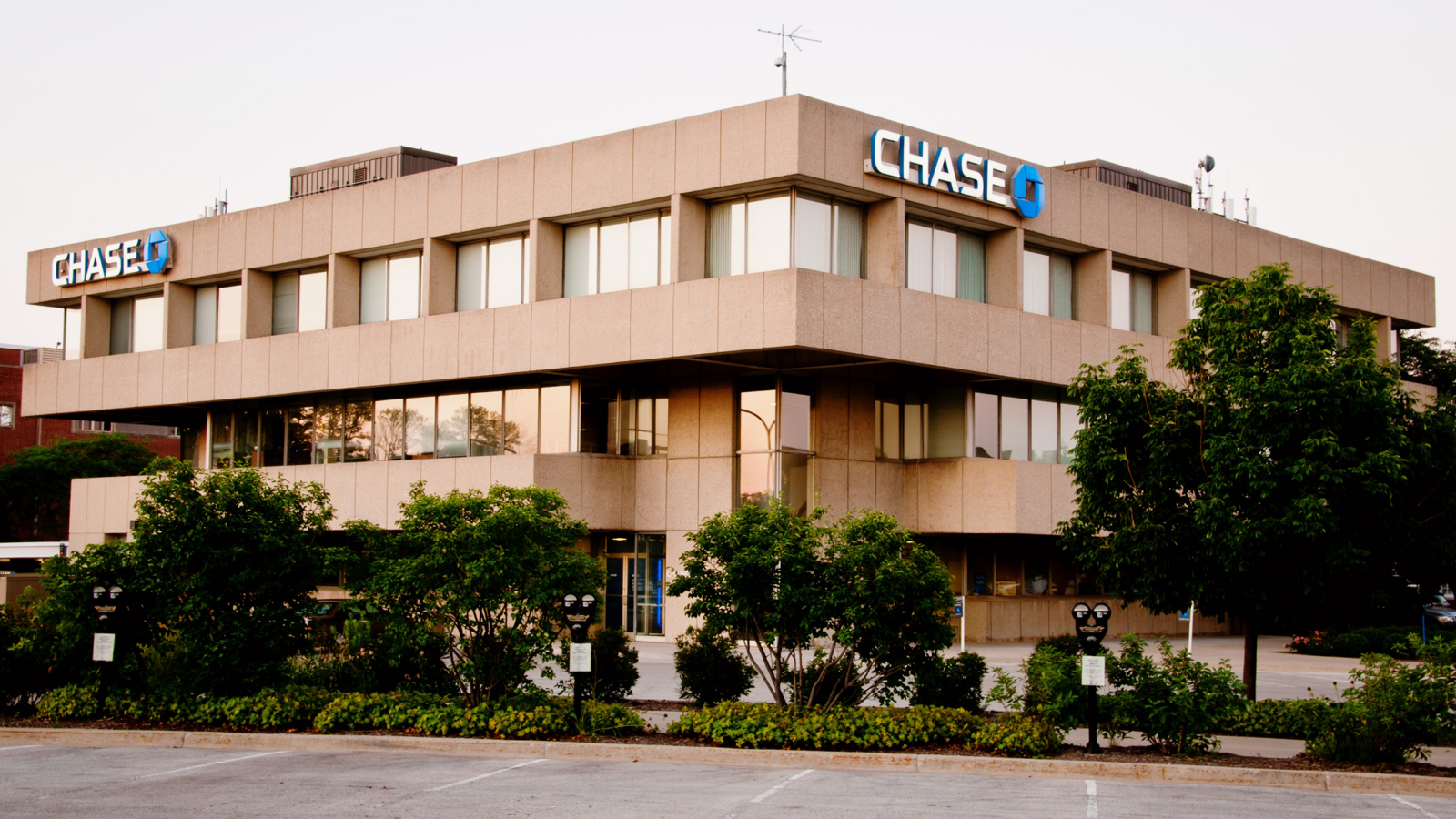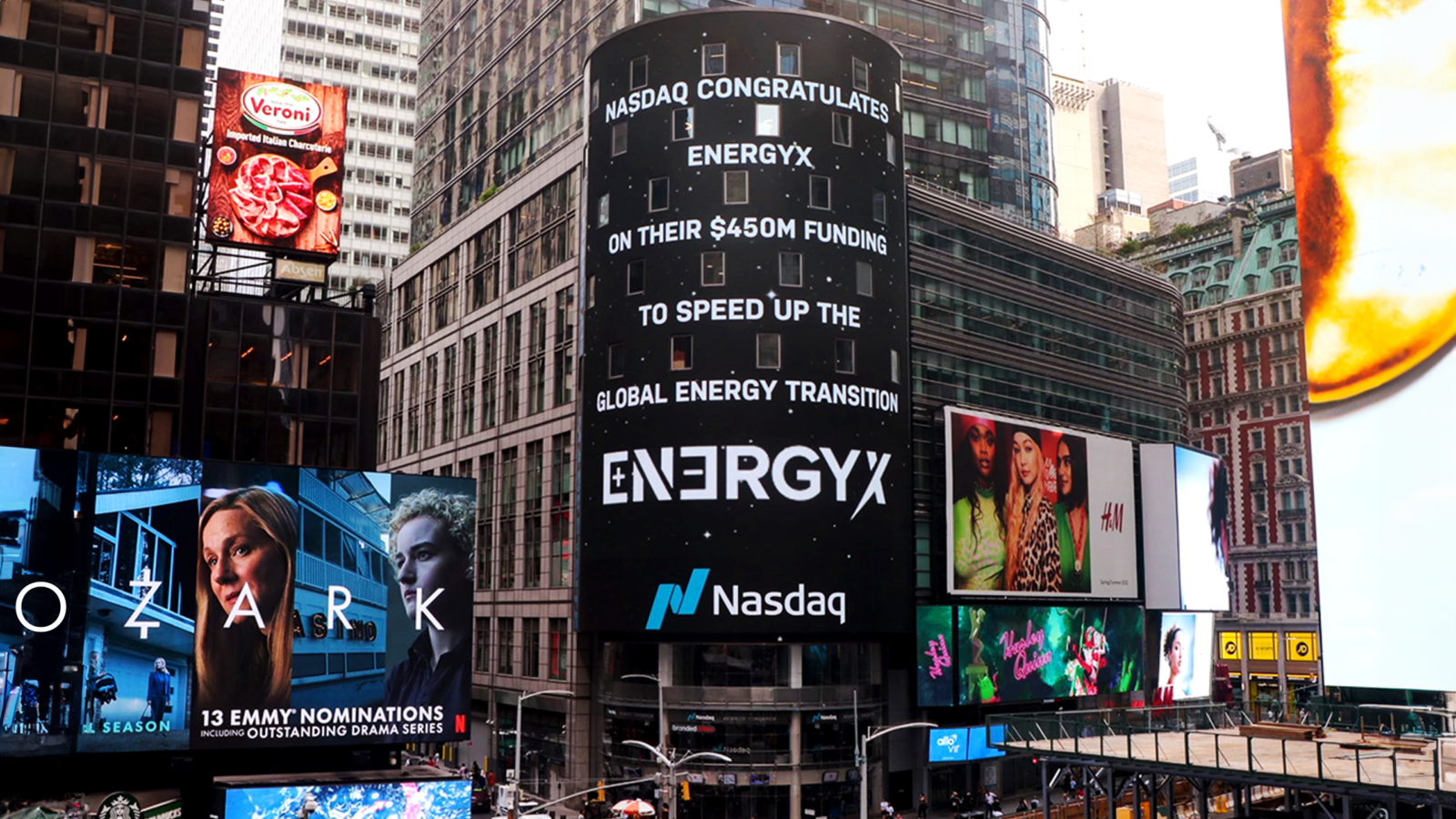Good morning.
Michael Jordan once had a monopoly on highlight-reel shots, but now he is suing NASCAR on antitrust grounds. The greatest basketball player of all time (sorry, LeBron stans) co-owns the 23XI Racing team that competes in NASCAR’s prestigious Cup Series. Alongside fellow racing team Front Row Motorsports, Jordan’s team claims in a federal antitrust suit that NASCAR and the billionaire France family that runs it are “monopolistic bullies.”
They argue that a new charter system — essentially a revenue-sharing model — offered to teams violates the Sherman Antitrust Act by trapping them in “anticompetitive terms,” obliging them to NASCAR’s series, tracks, and suppliers. So regardless of what happens on the track, this weekend’s NASCAR Cup Talladega race will be a slam dunk in the drama department.
JPMorgan to Open Nearly 100 Chase Branches in Low-Income Neighborhoods

Even in the desert, flowers bloom. The same is true for so-called banking deserts, or communities that lack adequate access to financial services.
On Wednesday, JPMorgan Chase announced it will cut the ribbon on nearly 100 brick-and-mortar locations in low-income inner-city and small-town American communities.
Oasis in the Desert
Since 1977, banks have been required under the Community Reinvestment Act — which sought to curb the practice of redlining — to lend to low-income people in areas where they have a physical presence. Last year, rules were updated to better reflect that financial services are less and less pegged to a brick-and-mortar locations and provide more services online, shifting scrutiny to where banks offer services rather than simply where they have physical outposts.
Meanwhile, the Federal Reserve Bank of Philadelphia found last year that some 12.3 million Americans lived in US census tracts without a bank branch. The total number of bank branches in the country fell by 5.6% from 2019 to mid-2023. The rise of banking deserts, the St. Louis Fed noted, has disproportionately impacted low-income and minority communities. JPMorgan’s plan to open nearly 100 Chase branches in lower-income communities is underway: One branch opened in Brooklyn Wednesday, and there are already locations in New Orleans, Chicago’s South Side, and Los Angeles’ Crenshaw neighborhood. While the move aims to boost inner cities and small towns, it’s also plain good business that will give it footing in overlooked markets, the bank says:
- A Chase community center branch concept — which offers banking services but also financial literacy courses — was piloted in New York’s Harlem neighborhood five years ago. JPMorgan told The Wall Street Journal that people opened more checking accounts there than other branches in the area between 2019 and 2023, and that, four years after the branch opened, personal savings balances at the location had risen 73%.
- “This is not just ‘do-gooding,’ this is business,” CEO Jamie Dimon told the WSJ. “We measured these branches by number of customers, deposits, investments, and the model works.”
Brick by Brick: Earlier this year, JPMorgan said it plans to open more than 500 branches and renovate nearly 1,700 by 2027 to broaden its overall on-the-ground footprint. Rival Bank of America has also jumped into the race: Last month, BofA said it will open 165 new branches by the end of 2026. Physical locations have reemerged as business positives because ATMs and apps don’t upsell you on mortgages, loans, and investments.
This Stock Is Up 1,072%

No, it’s not Nvidia. It’s EnergyX, a startup making lithium extraction 300% more efficient. Major companies like General Motors are already investing, and you can join them as an investor while EnergyX’s stock is still private.
Here’s why it’s such an intriguing investment opportunity. Lithium demand is projected to soar 20X higher by 2040, which makes EnergyX’s patented tech in demand. Plus, EnergyX is scaling quickly. They’ve earned a $5M Dept. of Energy grant and bought the rights to 100,000 acres of lithium-rich land in Chile.
Now you can share in their growth potential by investing before today’s midnight PST deadline.
Join 30,000+ investors by becoming an EnergyX shareholder while you still can.*
OpenAI Closes Its Latest Funding Round with One Major Request
OpenAI isn’t interested in open relationships.
As the buzzy artificial intelligence upstart finally wraps its latest funding round — a $6.6 billion raise at a gargantuan $157 billion valuation — it’s asking for a big commitment from its financial backers: exclusivity. On Wednesday, the Financial Times reported that the ChatGPT-maker is requesting its investors avoid backing competitors. The ask comes just as OpenAI fully enters the next phase of the burgeoning tech titan life cycle.
A Tech Tale as Old as Time
Uber once pitched investors on a future that could deliver cheap labor and services (in the form of private drivers) on demand. Netflix once pitched investors on a future that could deliver mass amounts of entertainment and media on demand. Both laced their shiny promises with one big, if implicit, caveat: It’ll take years and years and billions and billions of dollars before we reach the market share and scale and find the delicately-balanced business model needed to achieve profitability. But once we do, it’s game on.
Now, OpenAI is where those two companies were a decade ago — only its promises of ultra-cheap labor are based on possibly replacing humans. And, like both Uber and Netflix before it, OpenAI remains a massive money-loser. That means it’ll need a lot of financial runway to achieve its dreams — and that’ll be a lot easier if its backers aren’t crowding the runway by funding rivals. But OpenAI wunderkind Sam Altman can be forgiven for feeling cocky:
- The $6.6 billion raise marks the largest venture capital round of all time, led by a $1.3 billion investment from Thrive Capital, a source told The New York Times. Thrive Capital was joined by Microsoft (which has already invested $13 billion), AI chipmaker Nvidia, SoftBank, Fidelity, and Tiger Global, among others. Notably absent, sources told Axios, is Apple, which had been linked all summer to the funding round.
- The cash injection is well-timed; according to internal documents recently seen by the NYT, OpenAI expects to lose roughly $5 billion this year due to massive costs. Still, it expects its roughly $3.7 billion in projected revenue for 2024 to soar to $11.6 billion next year — just as the company sheds the final vestiges of its nonprofit origin.
Open and Closed: Whether OpenAI can get investors to agree to exclusivity remains an open question, the FT reports, and it’s not in VC firms’ nature to accept such demands. Better to spread your bets. Still, Uber successfully made similar demands in its ride to the top, making this a script even the lousiest of AI chatbots could write.
Toyota Invests $500 Million in Air Taxi Startup
Forget off-road. Toyota is going above-road.
On Wednesday, the world’s largest carmaker announced it’s investing $500 million into Joby Aviation, a Santa Cruz, California-based startup that wants to make flying taxis. It’s a major cash injection in a sector that’s had a bumpy ride when it comes to funding.
Jetsons-core
Technologically speaking, electric vertical take-off and landing (eVTOL) vehicles are still germinating. There’s a smattering of eVTOL startups readying themselves for different markets once the vehicles are actually ready and sanctioned to fly, and a bushel of different business models they’re pursuing (including organ transportation). For Joby, the pitch has always been to become the Uber of the skies. “Costs will be similar to what a passenger would pay for Uber Black,” Joby head of air operations and people Bonny Simi told The Daily Upside in May.
Toyota has already marked itself as something of a Joby believer. It handed the startup a little under $400 million back in 2020, and now it’s doubling down:
- The companies said in their press release that the fresh investment will go toward getting Joby’s vehicles cleared by regulators and onto an actual production line.
- Joby’s share price bounced up 27% following the announcement, but is still down about 54% since the company went public via a SPAC in 2021.
“Toyota’s investment, which will be made in two equal tranches, will support our ongoing work on aircraft certification and commercial production. Toyota employees already work side by side with the Joby team in California, and Toyota supports us with process planning, manufacturing method development, and tooling design,” a Joby spokesperson told The Daily Upside on Wednesday. “The investment will see us continue to work more closely together, with the second tranche, in particular, focused on establishing a strategic manufacturing alliance.”
Pick Your Flying Horse: Toyota isn’t the only legacy automaker channeling funds into flying cars. Stellantis invested $55 Million into eVTOL startup Archer in July, following a $110 million investment in 2023. Above all, no one wants to be left in the dust when flying cars take off.
Extra Upside
- Good News, Bad News: Both the layoff rate and the new hire rate are sitting at multi-year lows.
- Out of Juice: Tesla shares slip amid a smaller-than-expected rise in third-quarter deliveries.
- Your Sensitive Personal Information is Available on the Internet. But it doesn’t have to be. Take back your privacy with Incogni’s data removal service and reduce the risk of spam, scams, and identity theft. Try Incogni for 55% off using code TDU55.**
** Partner
Just For Fun
Disclaimer
*This is a paid advertisement for EnergyX’s Regulation A+ Offering. Please read the offering circular at invest.energyx.com/.

